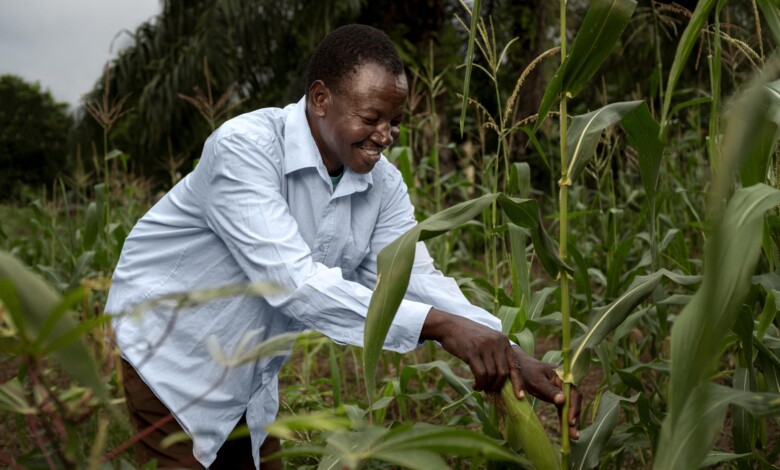The illusion of control in agriculture (cont’d)

By Yusuf Bulafu
Assalam alaykum warahmatullahi wabarakatuh
• Have you seen that which you emit? Is it you who creates it, or are We the Creator?
• Have you seen that which you sow? Is it you who makes it grow, or are We the grower?
• Have you seen the water that you drink? Is it you who brought it down from the clouds, or is it We who bring it down?
• Have you seen the fire that you ignite? Is it you who produced its tree, or are We the producer?
• So exalt the name of your Lord, the Most Great
Suratul Waqiah: 58-74
The Quran questions human assumptions about control over sustenance: “Have you seen that which you sow? Is it you who makes it grow, or are We the Grower?” (56:63-64).
Agriculture, often perceived as a domain of human expertise, is another arena where divine intervention is evident. However, no farmer can command the seed to germinate, the rain to fall, or the soil to remain fertile. The miraculous transformation of a tiny seed into a life-sustaining crop is an act of divine will, not human effort. Farmers may plant seeds, irrigate fields, and apply fertilizers, but the germination of seeds, the photosynthesis in plants, and the intricate balance of ecosystems are entirely under Allah’s control. Even the environmental conditions—sunlight, rain, and soil fertility—are blessings beyond human influence.
The Quran invites us to consider the process of planting and harvesting crops. While human effort is undeniably significant—tilling the soil (which Allah made tillable), planting seeds (which Allah made available and known), and watering (with the water He sent down)—the actual growth of the plant is a phenomenon beyond human control. Germination, the transformation of a seed into a sprouting plant, is dependent on countless factors: soil composition, sunlight, rainfall, and more. All of these are orchestrated by Allah’s will.
This reliance on divine mercy becomes especially apparent during times of drought, flood, or pest infestations, where human efforts are rendered futile. These instances remind humanity that while effort is necessary, the outcomes are ultimately controlled by Allah and that they were not in control from the first instance. This understanding breeds gratitude for sustenance and humbles those who might otherwise claim complete control over the food supply.
In modern times, advancements in agricultural science may seem to give humanity unprecedented control over food production. Genetically modified crops, irrigation systems, and fertilizers have revolutionized farming. Moreover, the precariousness of food security is evident in global hunger crises. Despite technological advancements, millions of people face food shortages due to natural disasters or political instability. This reality reinforces the Quranic assertion that sustenance is not a direct result of human effort but a divine provision.
The illusion of autonomy in daily life
Each of the examples in the Quranic passage—procreation, agriculture, and fire (which I haven’t studied about in depth, so I didn’t expound on it)—highlights humanity’s dependence on divine will. However, the illusion of control extends beyond these domains to encompass every facet of daily life. Every human action is underpinned by divine intervention. Even the basic acts of eating, drinking, and breathing rely on intricate processes that humans neither control nor fully comprehend.
For instance, consider the act of eating. While humans may grow and prepare food, the act of eating requires a complex interplay of divine provisions: the creation of fertile soil, the provision of rain, the process of photosynthesis, and the nurturing of livestock. Even digestion itself is beyond human control, as the body performs intricate biochemical processes without conscious intervention.
The believer acknowledges that even the simplest acts, like eating a morsel of bread or drinking water, are dependent on Allah’s provision and grace. This recognition epitomizes human impotence before the Creator and cultivates a profound sense of humility and gratitude. This, without doubt is one of the things that attract divine mercy that each and every one is in dire need of.
………………….TO BE CONTINUED






